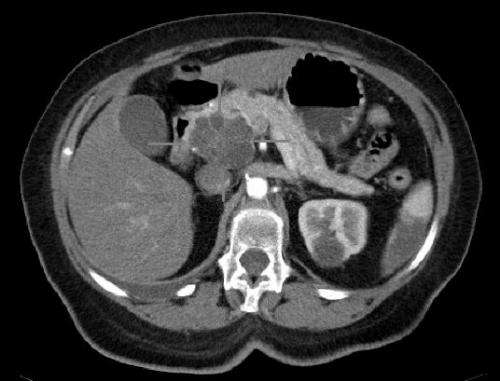PML as potential treatment for pancreatic cancer

A recent study in The FASEB Journal identifies a new mechanism of pancreatic tumors' resistance to chemotherapeutic treatment. The mechanism involves the loss of function of promyelocytic leukemia protein (PML), which operates like a tumor suppressor. Surprisingly, researchers found that the PML dysfunction was due not to a genetic mutation or altered gene expression, but rather to an alteration of a specific type of protein modification.
To conduct the experiment, researchers first generated protein modification profiles of resistant and non-resistant cells from a pancreatic cancer cell line. By comparing the profiles, they identified specific alterations of protein modifications associated with the resistant cells. Among the resistant cells was PML, known for its involvement in an aggressive form of leukemia. Using cultured cells, the current study revealed that an altered modification of PML known as sumoylation was also involved in pancreatic cancer cells' resistance to chemotherapeutic treatment.
Using patient-derived xenografts (i.e., human tumor samples implanted in mice), researchers observed that patients with both high expression of PML and high sumoylation of PML had better rates of survival. Conversely, the study showed that patients with either low expression of PML or low sumoylation of PML had worse rates of survival, as their tumors displayed resistance to chemotherapeutic treatment.
"These findings could improve the prognosis of pancreatic cancer patients in a relatively short period of time," said Philippe Soubeyran, Ph.D., a researcher at the Marseilles Cancer Research Center (CRCM), National Institute for Health and Medical Research (INSERM) in France. "In the long term, we may be able to improve pancreatic cancer treatments by restoring their efficacy over resistant tumors."
"That a post-translational modification of this protein is so determinative is an intriguing finding," said Thoru Pederson, Ph.D., Editor-in-Chief of The FASEB Journal. "It not only resets the therapeutic dimension but may herald similar oncoprotein events in other malignancies," he said.



















